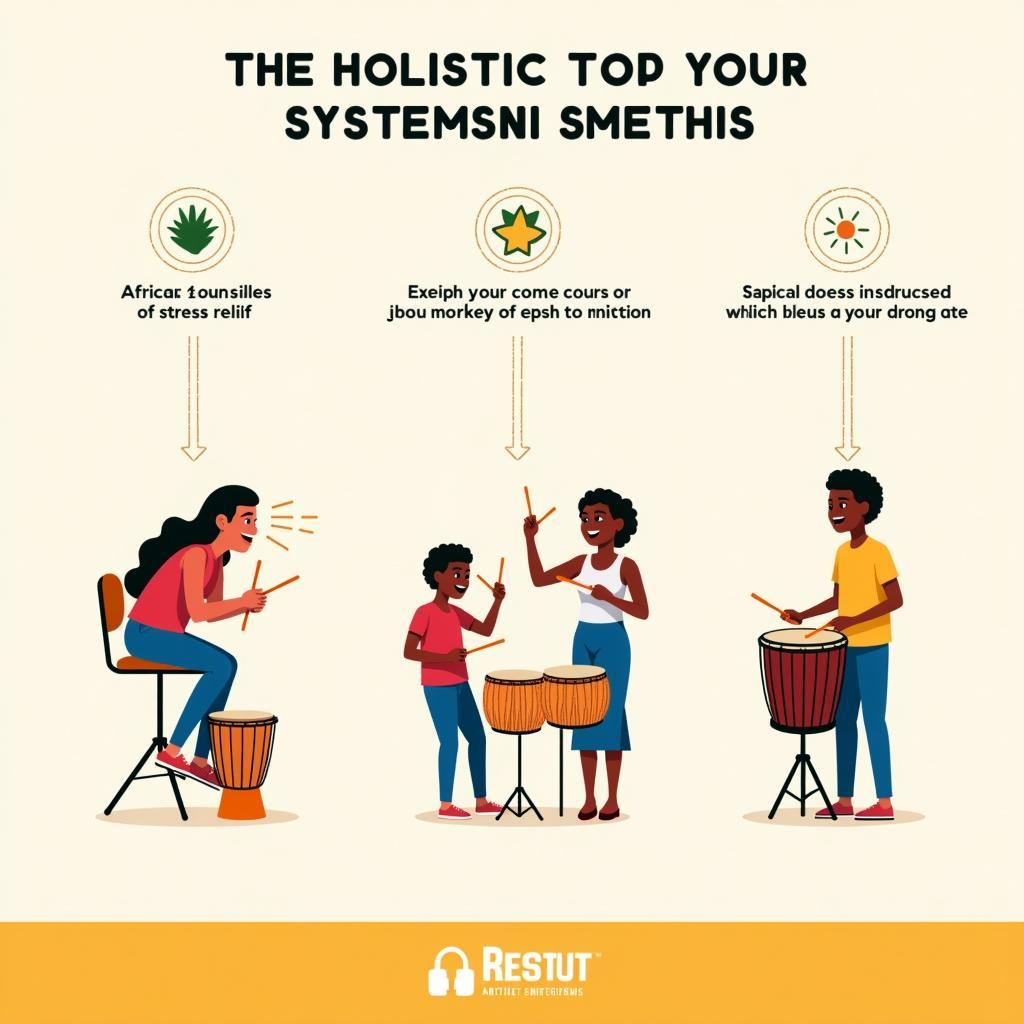Unleash Your Rhythm: A Guide to African Drumming Classes
African Drumming Classes offer a vibrant and engaging way to connect with the rich musical heritage of the African continent. Whether you’re a complete beginner or an experienced percussionist, these classes provide a welcoming and supportive environment to learn traditional rhythms, techniques, and cultural significance behind this powerful art form.
The Allure of African Drumming
African drumming is more than just hitting a drum; it’s a way of life. For centuries, drumming has played a vital role in African societies, accompanying rituals, ceremonies, storytelling, and social gatherings. The mesmerizing rhythms and pulsating beats have the power to transport you to another world, invoking a sense of unity, joy, and ancestral connection.
Finding the Right African Drumming Class
Ready to embark on your drumming journey? Here’s what to consider when choosing an African drumming class:
- Your Level: Many classes cater to different skill levels, from absolute beginners to advanced players. Look for classes specifically designed for your experience.
- Drum Type: There are various African drums, each with a unique sound and playing technique. The djembe is a popular choice for beginners.
- Teaching Style: Some instructors focus on traditional rhythms, while others incorporate contemporary elements. Consider your musical preferences.
- Class Size and Setting: Do you prefer a small, intimate group or a larger, more energetic class? Think about what environment suits your learning style.
What to Expect in Your First Class
Walking into your first African drumming class can be both exciting and nerve-wracking. Here’s a sneak peek into what you can anticipate:
- Warm-up Exercises: Expect to start with hand and body warm-ups to develop coordination and rhythm.
- Basic Techniques: You’ll learn fundamental drumming techniques like striking with your hands to produce different tones and rhythms.
- Call and Response: This interactive element involves the instructor playing a rhythm and the students responding with the same pattern.
- Learning a Traditional Rhythm: Be prepared to learn and play a simple traditional rhythm, gradually building complexity as you progress.
The Benefits of Drumming
 Benefits of African Drumming
Benefits of African Drumming
African drumming classes offer a wealth of benefits that extend far beyond the music:
- Stress Relief: Drumming is a fantastic way to release stress and tension. The rhythmic pounding allows for emotional release and promotes relaxation.
- Musicality: Develop your sense of rhythm, timing, and coordination while exploring the rich tapestry of African rhythms.
- Cultural Immersion: Gain a deeper understanding and appreciation for African culture, traditions, and the history behind the music.
- Social Connection: Drumming circles are inherently social. You’ll meet like-minded people who share a passion for music and rhythm.
African Drum Music: A Journey of the Soul
The power of African drum music lies in its ability to transcend language and cultural barriers, connecting people on a primal level. The pulsating rhythms have the ability to evoke a range of emotions, from joy and exhilaration to contemplation and reflection.
For those seeking a truly immersive cultural experience, learning about African idiophones can deepen your appreciation for the continent’s diverse musical traditions.
Keep the Rhythm Alive
Whether you’re drawn to the powerful rhythms, the cultural immersion, or the therapeutic benefits, African drumming classes offer an enriching experience. So, embrace the beat, find a class near you, and embark on a rhythmic journey that will nourish your mind, body, and soul.
FAQ
1. Do I need any prior drumming experience?
Not at all! African drumming classes are open to all levels, including beginners with no prior experience.
2. What kind of drum do I need?
Many classes provide drums, especially for beginners. As you progress, you might want to purchase your own djembe or another African drum.
3. How often should I practice?
Regular practice is key to improving your drumming skills. Aim for at least 30 minutes of practice several times a week.
4. What should I wear to class?
Wear comfortable clothing that allows for free movement.
5. Are there opportunities to perform?
Some drumming classes organize performances or participate in community events, giving you a chance to showcase your newfound skills.
Let’s Make Some Noise!
Ready to explore the captivating world of African drumming? Contact us today! Our team is ready to answer your questions and help you find the perfect class for your needs.
Phone: +255768904061
Email: [email protected]
Visit us: Mbarali DC Mawindi, Kangaga, Tanzania.
We offer 24/7 customer support. Let the rhythm move you!

